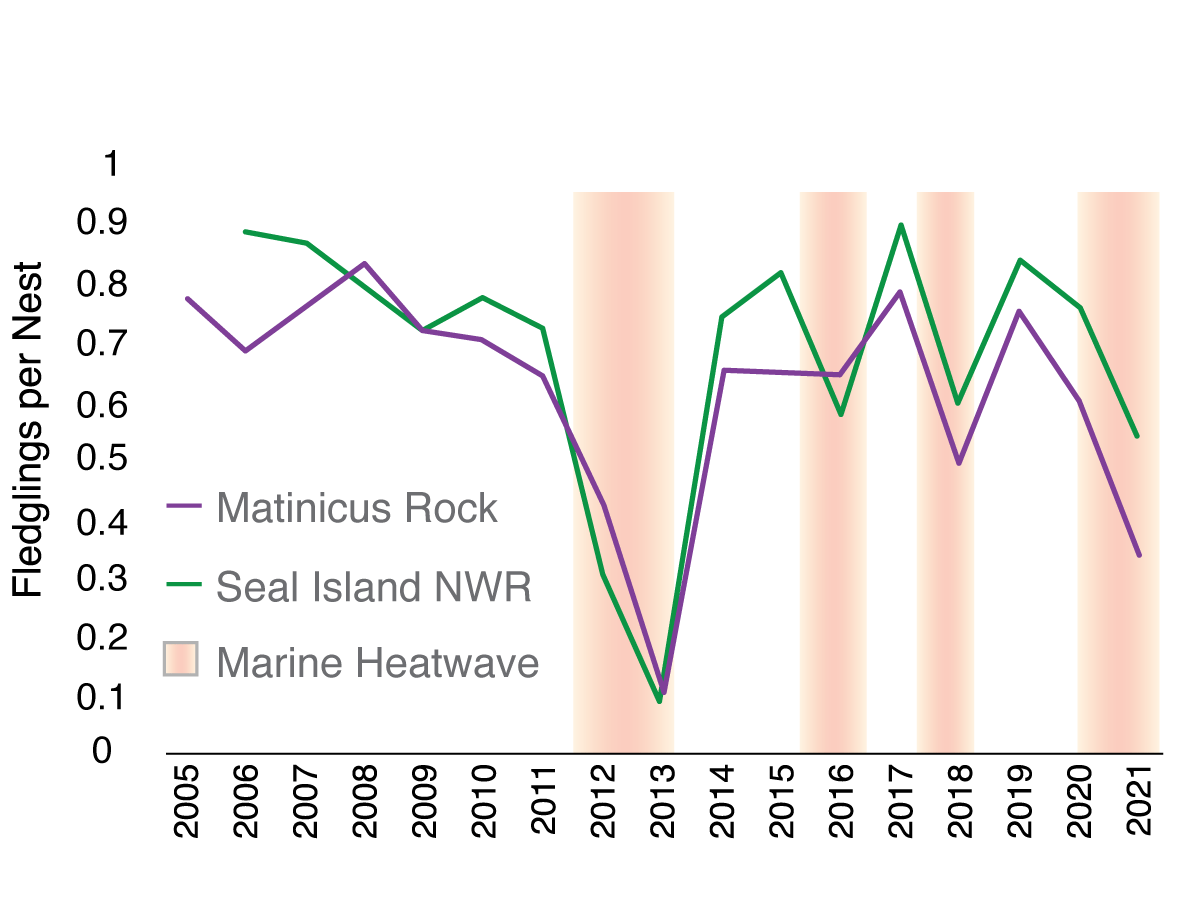Seabirds
Reducing Climate Change and Ocean Hazards
Status: Global declines are reflected in U.S. waters
Seabirds are suffering cascading declines around the world; one study documented a 70% population loss for seabirds since the 1950s. Sadly those declines are also occurring in America’s ocean waters, where about a quarter of U.S. seabird species are designated as Tipping Point species. Seabirds spend almost their entire lives on the ocean, so they are important indicators of the health of marine ecosystems.
- Climate change is a major stressor on seabird populations, as warming and rising ocean waters reduce nesting habitat, impact prey fish populations, and whip up deadly storms.
- Fisheries bycatch and the overfishing of prey fish also contribute significantly to seabird declines.
- Other human-induced threats to seabirds include marine debris pollution (60% of seabird species have been found to ingest plastics and 40% have been entangled in debris) and invasive species on nesting islands (invasives such as rats have caused breeding population declines on islands for nearly half of seabird species).
*From Partners in Flight Avian Conservation Assessment Database.
Puffin Colony Declines on Both Coasts

Puffin nesting colonies along both the Atlantic and Pacific Coasts exemplify the threats that seabirds face from food shortages. Declines in forage fish populations, caused by climate change effects and over-harvesting by commercial fishing operations, directly impact the ability of puffins to survive and feed their young.
In the East, Atlantic Puffin colonies in the Gulf of Maine have experienced widespread nesting failures during marine heat waves (periods of unusually warm ocean waters), which have become increasingly common over the past decade. In the Northwest, Tufted Puffin colonies along the Oregon coast have dramatically declined since 1979, with the number of active colonies down more than 50% and the estimated breeding population down a staggering 90%.
